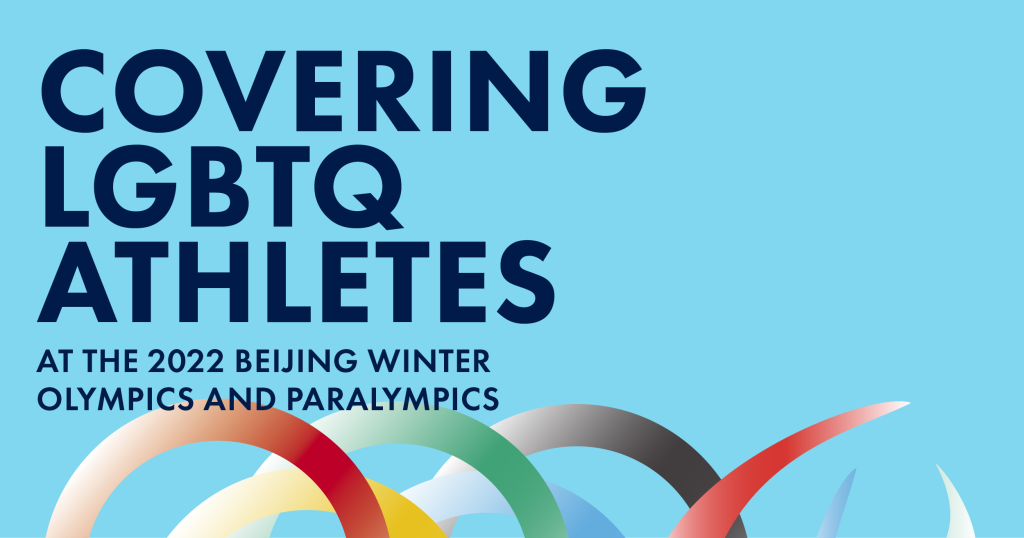The 2022 Beijing Winter Olympics and Paralympics will bring excitement, hope, and inspiration to millions of sports fans around the world this February 4th through 20th. And the participation of out LGBTQ athletes will not only provide positive representation and visibility for LGBTQ people, but will also give journalists a news peg from which to explore topics facing LGBTQ athletes at every level.
GLAAD has partnered with Athlete Ally and OutChina to create a new media guide for journalists covering the 2022 Winter Games. The guide offers cultural, geographical, and political context; bios on some of the out LGBTQ athletes participating, policy briefs, Olympic and Paralypmic history, terminology basics, and more.
READ ‘COVERING LGBTQ ATHLETES AT THE 2022 BEIJING WINTER OLYMPICS AND PARALYMPICS’ HERE
At least 32 out LGBTQ athletes from 14 countries will compete in this year’s winter games, according to Outsports—including the first nonbinary Winter Olympian, Team USA figure skater Timothy LeDuc. Other well-known athletes to watch include British freestyle skiing silver medalist Gus Kenworthy, Australian snowboarder Belle Brockhoff, and Team USA figure skater Jason Brown—all of whom have been outspoken LGBTQ advocates. The Olympics and Paralympics have seen vast increases in out LGBTQ visibility over the past several years; last summer’s Tokyo Games saw the first ever trans Olympians, and the 2018 Pyeongchang (winter) Games featured the first out gay male athlete to compete in a Winter Olympics event. More facts about the history of LGBTQ athletes in the Olympics and Paralympics can be found in the guide. Please note that the number of out LGBTQ athletes is subject to change after publication; GLAAD recommends referring to the tracker on leading LGBTQ sports outlet Outsports for updates.
The guide also features context about China, which is hosting the winter games for the first time. Three chapters in the guide are devoted to contextualizing the athletic events against a background of Chinese LGBTQ advocacy as well as state-sponsored repression and human rights abuses against the LGBTQ community in China.
Reporters seeking to connect the games with the current U.S. political climate will find background on anti-LGBTQ discrimination in sports, state attacks on access to sports for transgender and nonbinary youth, and tools to combat misinformation about transgender and nonbinary athletes. Journalists are uniquely positioned to help stem the tide of misinformation and transphobic discourse currently surrounding sports, and the guide will help them do so by offering history, context, terminology, and best practices.
GLAAD has published similar guides for journalists covering past Olympic events, such as the 2021 guide to covering the Tokyo Games (published in partnership with Pride House Tokyo and Athlete Ally), and the 2014 Sochi Olympics Playbook.













